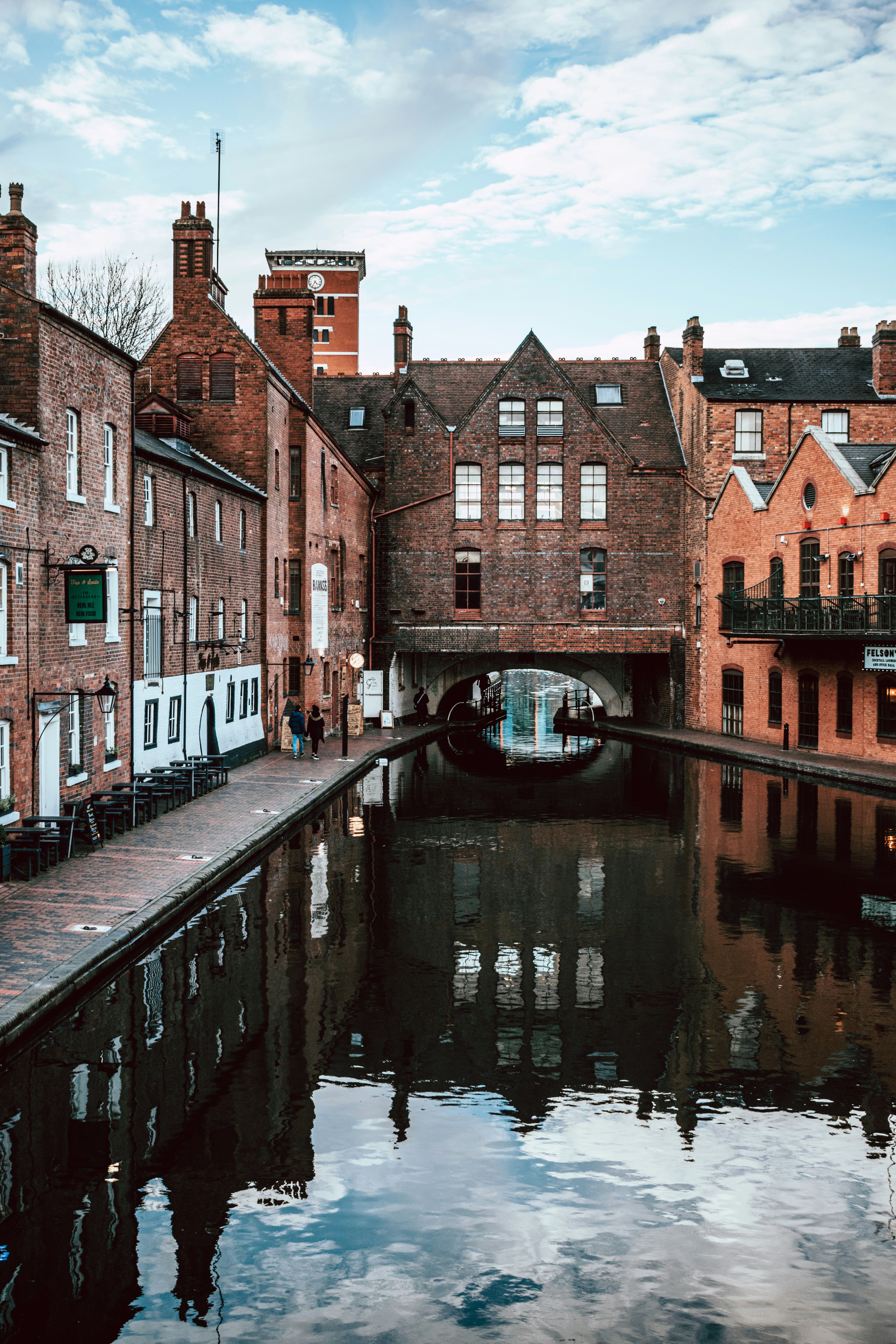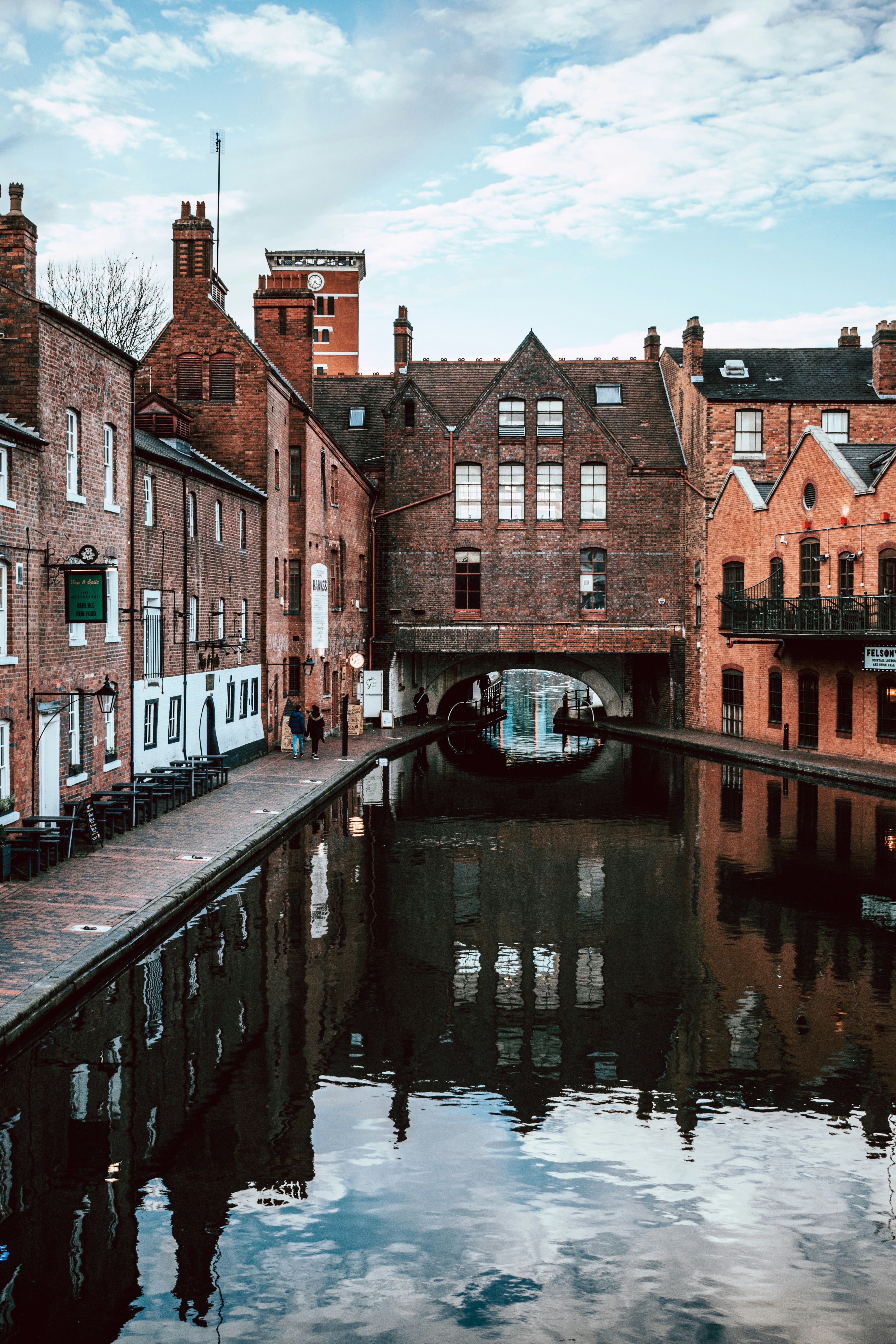Birmingham’s Industrial Heritage
Birmingham’s industrial heritage is deeply rooted in its geographical location and natural resources. Situated in the heart of England, the city was surrounded by an abundance of coal, iron ore, and limestone, which were crucial raw materials for the burgeoning industries of the time. These resources, coupled with the city’s convenient canal networks and later railway connections, made Birmingham an ideal location for the establishment of factories and workshops.
The Industrial Revolution in Birmingham
During the Industrial Revolution, Birmingham experienced a rapid transformation from a predominantly agricultural economy to a thriving industrial powerhouse. The city became known for its skilled craftsmen and innovative entrepreneurs who developed new techniques and technologies. One such example is the Lunar Society, a group of intellectuals and scientists who met regularly in Birmingham during the late 18th century. The Lunar Society included prominent figures such as Matthew Boulton, James Watt, and Josiah Wedgwood, who played pivotal roles in the advancement of science, industry, and commerce.
Manufacturing Prowess
Birmingham’s industrial prowess was particularly evident in the manufacturing sector. The city became renowned for its production of metal goods, including jewelry, buttons, and buckles. The Jewelry Quarter, which still exists today, was a hub of activity where skilled artisans crafted intricate pieces of jewelry that were highly sought after both domestically and internationally.
In addition to jewelry, Birmingham was also a leading producer of a wide range of other goods. The city’s factories churned out everything from guns and nails to steam engines and bicycles. The iconic Birmingham-made “Birmingham Small Arms” (BSA) motorcycles were a symbol of British engineering excellence and were exported to countries around the world.
Technological Advancements
Furthermore, Birmingham’s industrial heritage extended beyond manufacturing. The city was also at the forefront of technological advancements, particularly in the field of transportation. The world’s first practical steam engine locomotive, built by George Stephenson, was manufactured in Birmingham. This invention revolutionized transportation and paved the way for the development of railways, which played a crucial role in the expansion of trade and commerce across the United Kingdom.
Preserving Industrial Heritage
Today, Birmingham’s industrial heritage is still visible throughout the city. Many of the historic factories and workshops have been repurposed as museums, art galleries, and cultural spaces. Visitors can explore the Black Country Living Museum, which offers a glimpse into the region’s industrial past, or marvel at the stunning architecture of the Jewellery Quarter.
In conclusion, Birmingham’s industrial heritage is a testament to the city’s resilience, innovation, and entrepreneurial spirit. Its impact on the development of the United Kingdom cannot be overstated. From the birthplace of the Industrial Revolution to a modern-day cultural hub, Birmingham continues to honor its industrial past while embracing the opportunities of the future.
Effects on Infrastructure and Industries
As Birmingham’s industrial revolution gained momentum, the city’s population soared, attracting workers from rural areas in search of employment opportunities. The influx of people led to the expansion of the city’s infrastructure, with new roads, canals, and railways being constructed to facilitate the transportation of raw materials and finished goods.
Birmingham’s industrial prowess extended beyond metalworking and textile manufacturing. The city also became a center for innovation in other industries. For example, the glassmaking industry flourished in Birmingham, with skilled artisans producing a wide range of glassware, including decorative items, mirrors, and lenses for scientific instruments.
The industrial revolution in Birmingham also had a significant impact on the social and cultural fabric of the city. The rapid urbanization and the concentration of industries led to the formation of distinct working-class communities, with workers living in close proximity to their workplaces. These communities developed their own unique culture and identity, with social clubs, pubs, and theaters becoming important gathering places for workers.
Furthermore, Birmingham’s industrial revolution had far-reaching effects on the global stage. The city’s manufactured goods, known for their quality and innovation, were exported to markets around the world. Birmingham became a hub of international trade, with merchants and traders flocking to the city to capitalize on its industrial output.
However, the industrial revolution also brought with it numerous challenges. The rapid industrialization led to overcrowding, poor living conditions, and health hazards for the working-class population. Workers often faced long hours, low wages, and dangerous working conditions. The emergence of factories and the mechanization of production also displaced many skilled artisans, leading to social unrest and protests.
Despite these challenges, Birmingham’s industrial revolution laid the foundation for the city’s future prosperity. The innovations and advancements made during this period continue to shape the city’s identity as a center for manufacturing and industry. Today, Birmingham is a vibrant and diverse city, known for its rich industrial heritage and its contributions to innovation and technology.
Economic and Political Implications
Aside from its impact on industries, transportation, and culture, the industrial revolution in Birmingham also had significant effects on the United Kingdom’s economy and political landscape. The city’s manufacturing prowess propelled the country to become a global economic powerhouse, with Birmingham at the forefront of this transformation.
The industrial revolution led to a surge in trade and exports, as British goods produced in Birmingham found markets all around the world. The city’s manufacturing capabilities allowed the United Kingdom to dominate industries such as textiles, iron, and steel, giving it a competitive edge in the global market. This economic success not only boosted the country’s GDP but also solidified its position as a leading player in the international trade arena.
Moreover, the industrial revolution in Birmingham had profound political implications. The city’s economic growth and increasing influence brought about a shift in power dynamics within the United Kingdom. Birmingham’s rise as an industrial powerhouse challenged the traditional dominance of London and other established centers of power, leading to a redistribution of political influence and resources.
The emergence of Birmingham as a major industrial center also led to the rise of trade unions and workers’ rights movements. The harsh working conditions and long hours endured by the city’s factory workers sparked a wave of activism, with workers demanding better pay, improved working conditions, and the right to organize. These movements paved the way for important labor reforms and legislation that improved the lives of workers not only in Birmingham but across the United Kingdom.
In conclusion, the industrial revolution in Birmingham had far-reaching effects on the United Kingdom. It transformed the country’s economy, politics, and culture, propelling it to become a global economic powerhouse. The city’s manufacturing prowess, transportation networks, and cultural diversity shaped the social fabric of the nation, leaving a lasting legacy that can still be seen today in its architecture and vibrant arts scene. The industrial revolution in Birmingham was a pivotal moment in the history of the United Kingdom, marking a turning point in its trajectory and setting the stage for its future as an industrial and economic leader.
Preservation and Continued Appreciation
Moreover, Birmingham’s commitment to preserving its industrial heritage extends beyond physical sites and events. The city has also invested in educational programs and initiatives to ensure that future generations understand and appreciate the significance of its industrial past. Schools in the area incorporate lessons on Birmingham’s industrial history into their curriculum, allowing students to learn about the city’s role in the Industrial Revolution and the impact it had on society.
Furthermore, the local government works closely with historians, preservationists, and community organizations to identify and protect historically significant industrial sites. This collaborative effort ensures that these sites are properly maintained and that their stories are shared with the public. By doing so, Birmingham ensures that its industrial heritage remains a living part of the city’s fabric, rather than fading into obscurity.
In addition to preserving physical sites and educating the public, Birmingham also recognizes the importance of supporting industries that carry on the city’s industrial legacy. The city provides grants and resources to businesses in sectors such as manufacturing and engineering, encouraging innovation and growth in these fields. By doing so, Birmingham not only pays homage to its industrial heritage but also ensures that it remains a vibrant and thriving hub for industry and innovation.
Overall, Birmingham’s efforts to preserve its industrial heritage are multifaceted and comprehensive. From repurposing historic buildings to hosting events and supporting industries, the city is committed to honoring its past while embracing its future. By doing so, Birmingham ensures that its industrial heritage continues to shape its identity and inspire future generations.
Enter your email to get the Latest Updated Exploring News and Topics
Discover more from atozexplore.com
Subscribe to get the latest posts sent to your email.







